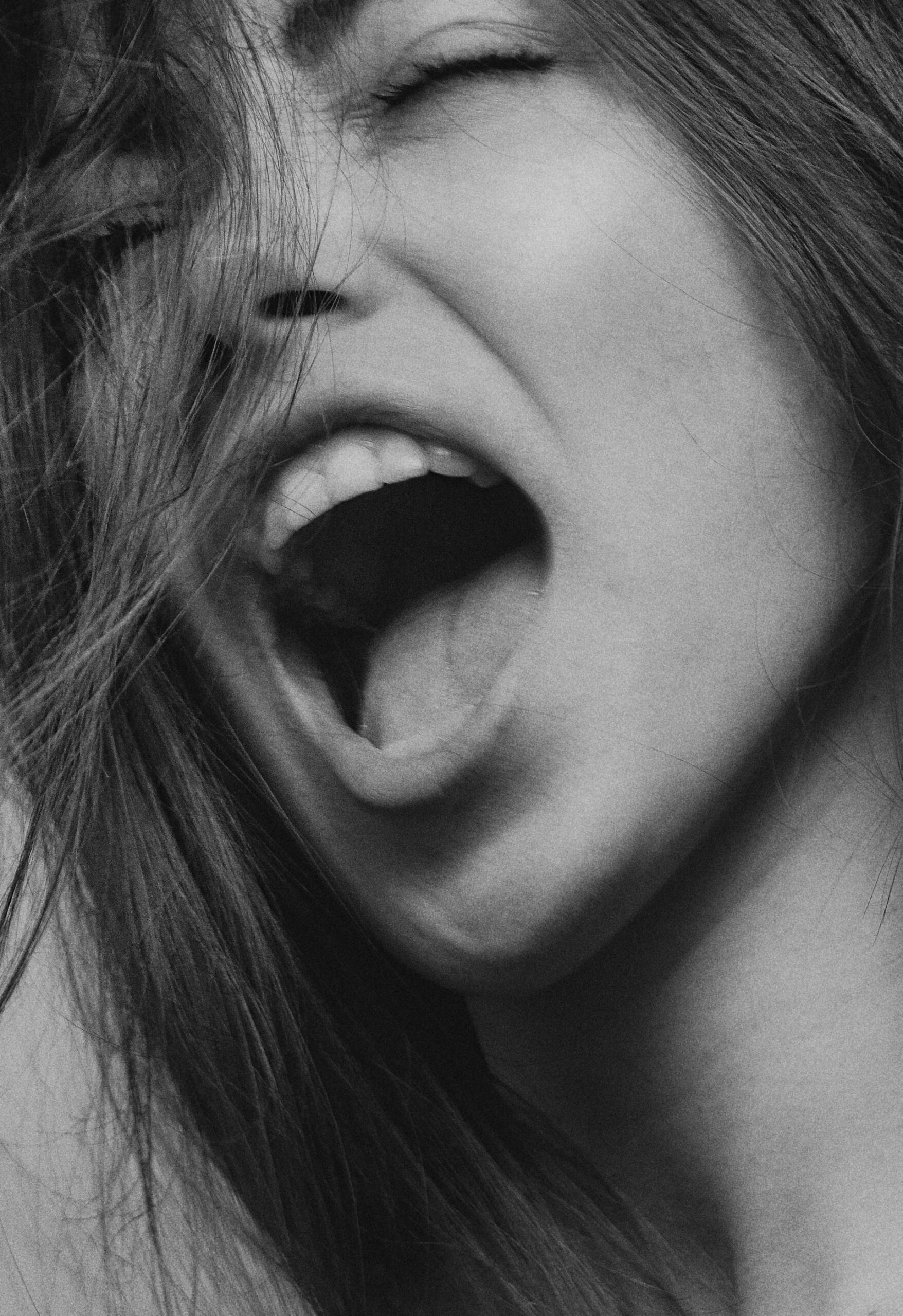Bruxism is a condition characterised by the involuntary grinding or clenching typically occurring during sleep. While occasional teeth grinding is common and may not cause significant problems, chronic bruxism can lead to various dental, oral, and overall health issues..
- Muscle Tension: Bruxism often leads to increased muscle tension in the face, particularly in the jaw, temples, and forehead. This constant muscle contraction can contribute to the development of creases and fine lines, especially around the eyes, forehead, and mouth.
- Jawline Definition: The repetitive grinding and clenching motions of bruxism can result in hypertrophy or enlargement of the masseter muscles, leading to a square or bulky appearance of the jawline. This may affect facial symmetry and contouring.
- Temporomandibular Joint (TMJ) Issues: Bruxism can strain the temporomandibular joint (TMJ), leading to symptoms such as jaw pain, clicking or popping sounds, and difficulty opening or closing the mouth. TMJ dysfunction can contribute to facial discomfort and may affect skin health due to increased muscle tension and stress.
- Skin Irritation: The constant pressure and friction caused by teeth grinding and clenching can irritate the skin around the mouth and chin area. This may result in redness, inflammation, and even the development of acne or other skin conditions.
- Sleep Disturbance: Bruxism is often associated with sleep disorders such as sleep apnea or insomnia. Poor quality sleep can lead to various skin issues, including dullness, dehydration, and accelerated ageing. Chronic sleep deprivation may also impair the skin’s ability to repair and regenerate, exacerbating existing skin concerns.
Bruxism and Face Augmentation: Bridging Dental and Skin Care for Comprehensive Treatment
Yes, Facial rejuvenation enhancement can be a beneficial treatment option for addressing the effects of bruxism on the skin. Bruxism, or teeth grinding and clenching, can lead to increased muscle tension in the face and jaw area, which may contribute to creases, fine lines, and other skin issues over time.
Here’s how Facial rejuvenation enhancements can help the context of bruxism:
- Muscle Relaxation: Face Augmentation works by temporarily paralyzing or relaxing the muscles into which it is dosed. When dosed into the facial muscles affected by bruxism, Face Augmentation, the repetitive movements associated with teeth grinding. This relaxation of the muscles can also help prevent the formation of deep lines and creases caused by habitual muscle contractions.Reduction of Jaw Tension: Bruxism often results in excessive pressure and tension in the jaw muscles. By dosing Face Augmentation into specific areas of the jaw, such as the masseter muscles, muscle activity can be reduced, leading to a decrease in jaw tension. This not only helps alleviate discomfort associated with bruxism but can also have a positive impact on the appearance of the jawline by reducing muscle bulkiness.
- Prevention of Skin Damage: Constant grinding and clenching of teeth can cause the skin to crease and fold repeatedly, leading to premature aging and skin damage. By relaxing the facial muscles involved in bruxism, Facial rejuvenation enhancements can help prevent these repetitive motions, thereby reducing the likelihood of skin damage and promoting smoother, more youthful-looking skin over time.
- Complementary Treatment: Facial rejuvenation enhancements can complement other treatments for bruxism, such as wearing a night guard or undergoing dental procedures to correct bite alignment issues. By addressing both the dental and skin aspects of bruxism, patients can achieve comprehensive relief from symptoms and improve both their oral health and facial aesthetics.
CONCLUSION
Addressing bruxism from a skin perspective may involve a combination of dental treatments to alleviate teeth grinding and clenching, as well as skincare interventions to address any skin issues caused or exacerbated by bruxism. For example, using gentle skin care products and moisturizers can help soothe irritated skin, while treatments such as facial massage or relaxation techniques may help reduce muscle tension and promote skin health
Overall, it’s important to recognize the potential impact of bruxism on skin health and to take proactive steps to address both the dental and dermatological aspects of this condition. Seeking professional guidance from dentists and dermatologists can help develop personalized treatment plans to manage bruxism and minimize its effects on skin appearance and health.
